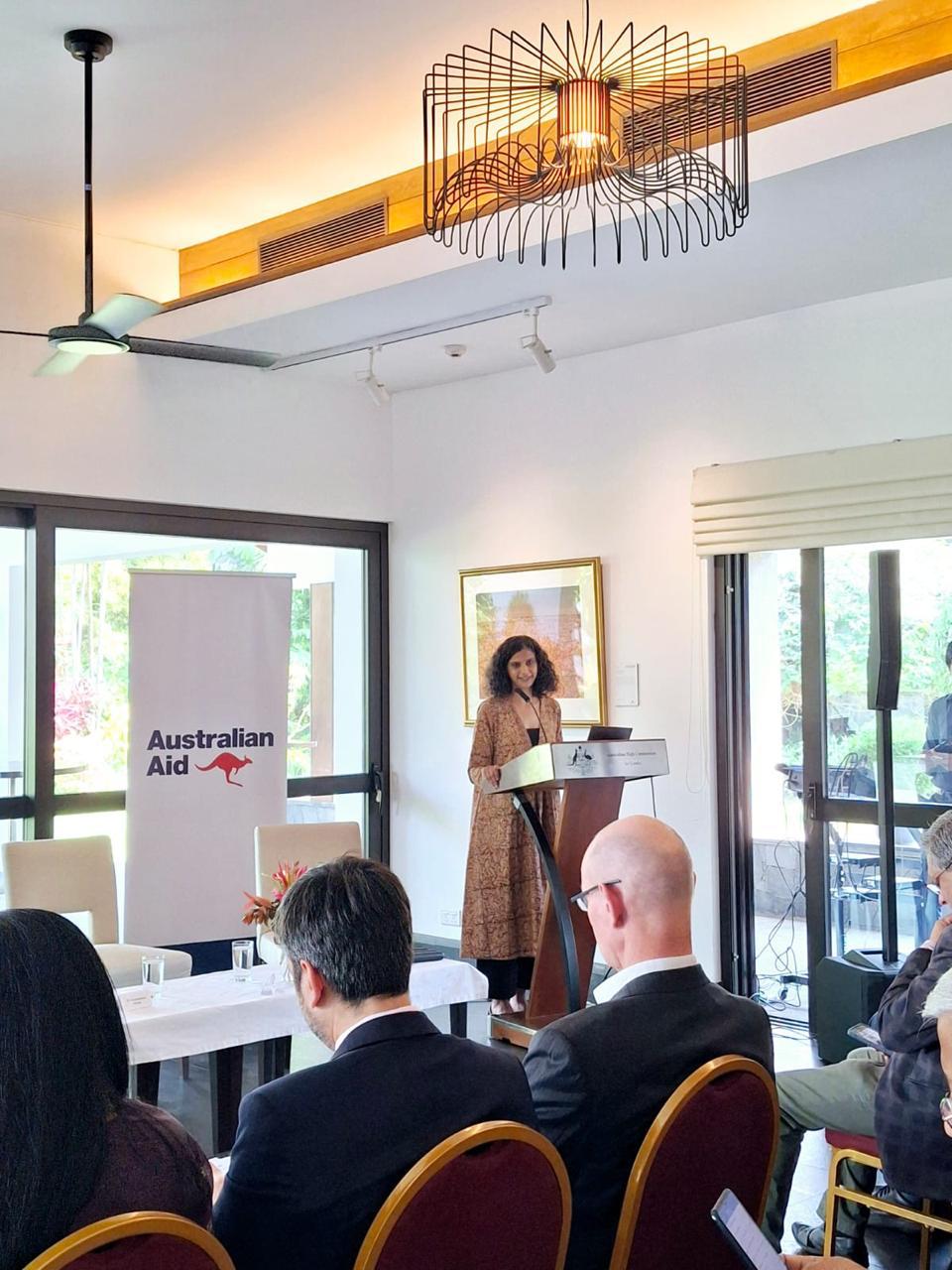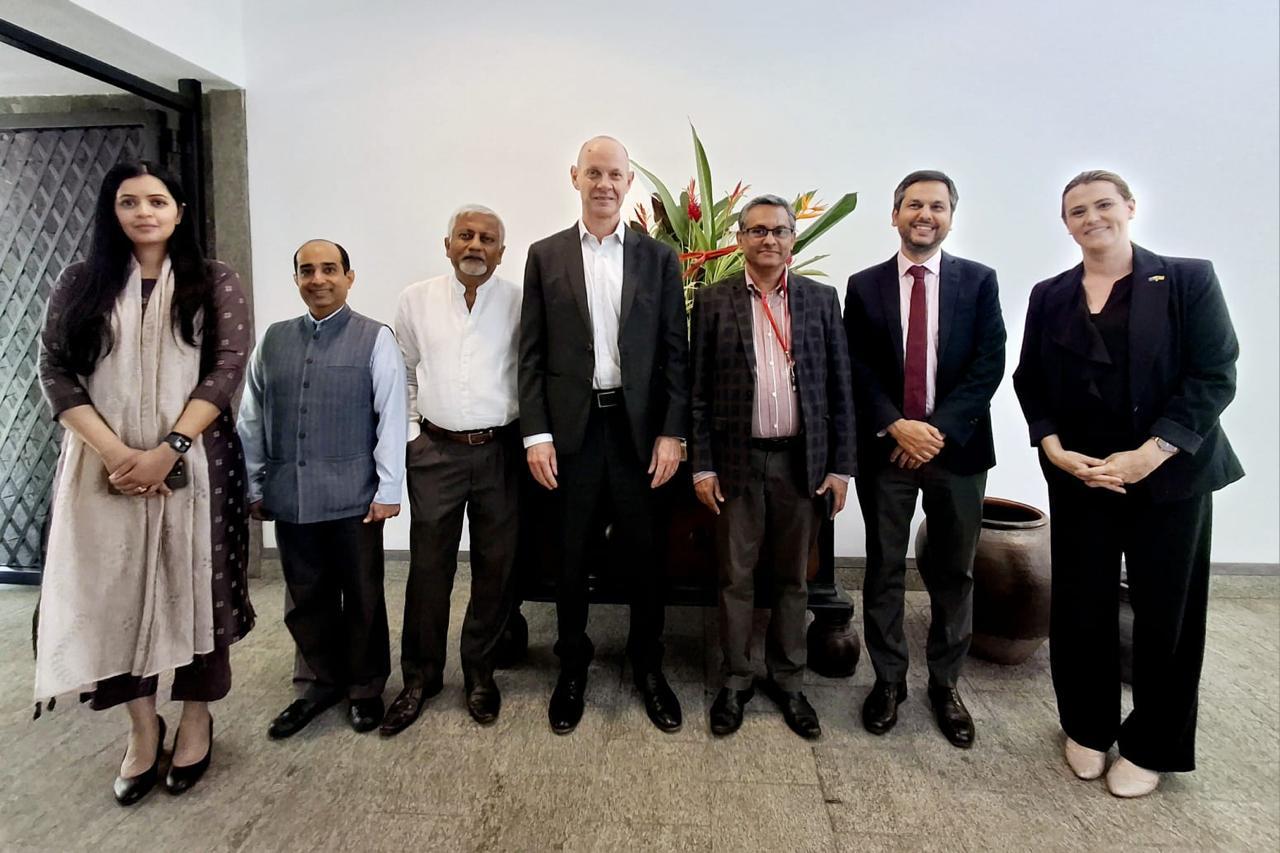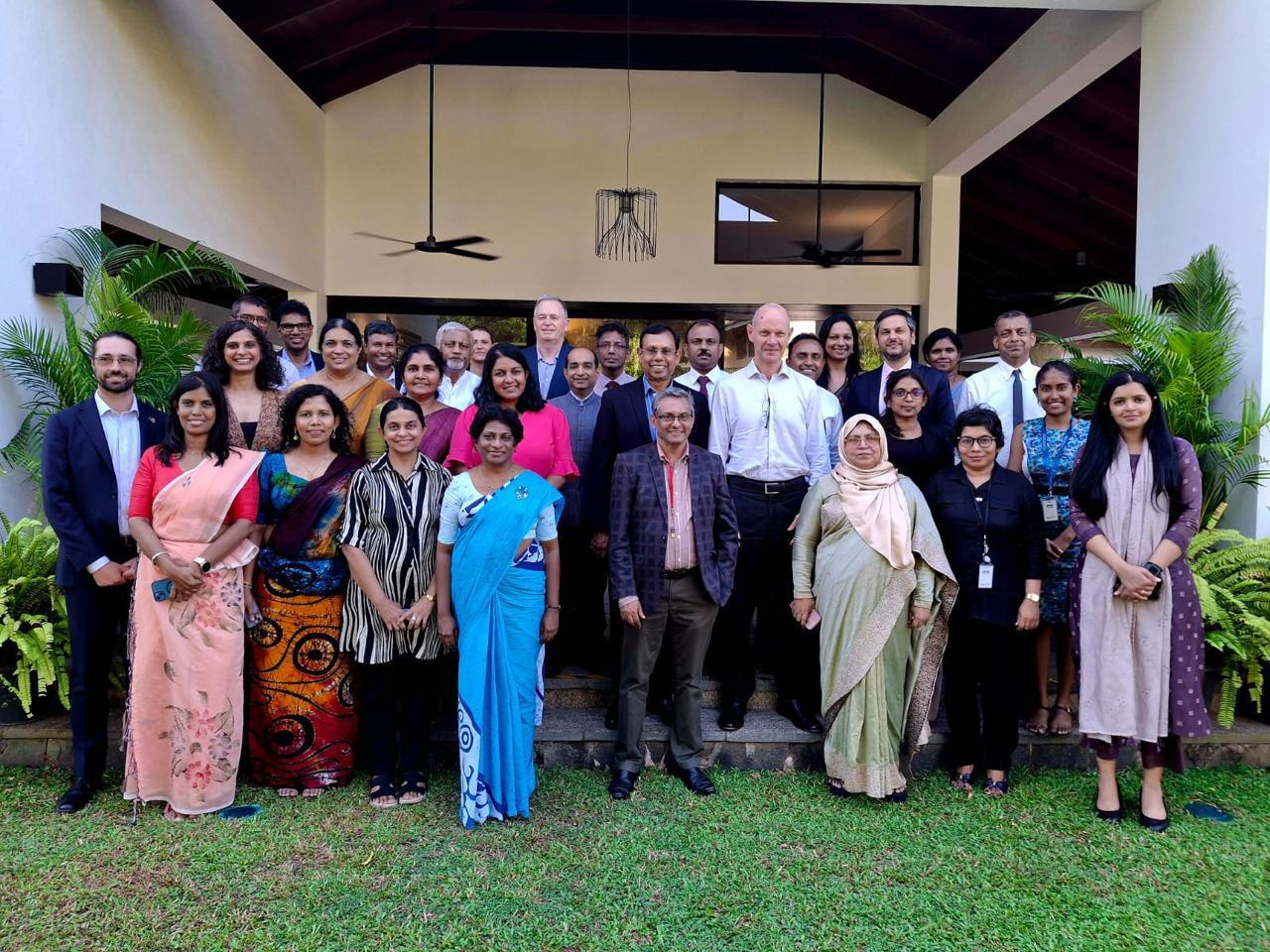SARIC along with the Australian High Commission in Colombo organised a knowledge & networking session on the theme of Transforming Sri Lanka: A Green Future for Energy and Logistics. The session was delivered by experts from the Centre for Social and Economic Progress (CSEP), Shippers Academy Colombo and LIRNEasia. The aim of the session was to foster a regional dialogue with comparative experiences to help improve Sri Lanka’s connectivity landscape and reduce carbon emissions through targeted interventions in key sectors, including logistics and energy transition.
The opening remarks were delivered by His Excellency Paul Stephens, High Commissioner of Australia to Sri Lanka, and Dr. Constantino Xavier, Senior Fellow, CSEP, set the context for the session. Both speakers highlighted the role that Australia is playing in the region and specifically through SARIC in the energy and transport sectors by working with regional governments and the private sector to promote partnerships, engagement, financing, support public investments and inform policy on the program along with supporting technical capacity building and regional networking. Australia is committed to fostering discussions, partnerships, and collaborative solutions for enhanced regional connectivity.
Session 1 focused on technology’s role in trade facilitation and carbon reduction with a flavour of regional experiences while Session 2 in the day discussed Sri Lanka’s 2030 Energy Transition from a financing and sectoral lens. Speakers included Rohan Masakorala, CEO of Shippers Academy Colombo, Riya Sinha, Associate Fellow at CSEP, Dr. Rahul Tongia, Senior Fellow at CSEP, and Dr. Rohan Samarajiva, Chairman of LIRNEasia. The experts addressed key challenges and opportunities , such as Sri Lanka’s setbacks due to policy changes and lack of digitalization, India’s progress in digital trade facilitation, the need for mutual recognition of digital certificates and legal frameworks for successful cross-border digitization in South Asia, and the country’s energy transition policies. Discussions emphasized that Sri Lanka’s primary focus should be decarbonization while meeting its growing electricity demand for human development. The need for significant investment in energy projects was highlighted, along with concerns about inconsistent policies and regulatory constraints discouraging investors. The session concluded with a discussion on the way forward for Sri Lanka in enhancing infrastructure productivity and fostering networks among policymakers and industry experts in the region through programs such as SARIC.
The knowledge session brought together senior professionals from SARIC’s alumni network in Sri Lanka , representatives from the Department of Foreign Affairs and Trade, and the World Bank Group. The session was well attended by representatives from Sri Lanka’s Ministry of Power and Energy, Ministry of Ports, Shipping and Aviation, Road Development Authority, Public Utilities Commission, Sri Lanka Sustainable Energy Authority, Ceylon Electricity Board, University of Kelanya, Regional Cantre for Strategic Studies, Verite Research, among others. The day ended with discussions and networking between all attendees at the Australia House.


